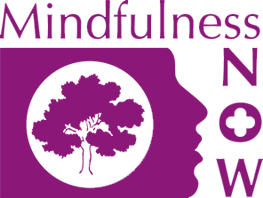It’s official! Mindfulness is not just for those with time on their hands. Increasingly it is being used by busy people, often within organisations, who, on the face of it, have no time at all to engage in mindful activities. It’s a common misconception that mindfulness takes up a lot of time. In fact you may be pleasantly surprised to learn that quite a lot of mindfulness takes up very little time because it makes use of time we are already expending on activities in our everyday lives.
So what is mindfulness?
Very simply it can be thought of as awareness, or focus. Pioneer of therapeutic / clinical mindfulness, Dr Jon Kabat-Zinn describes it as ‘Paying attention in a particular kind of way, on purpose, in the present moment – and non-judgementally’. Sounds all too simple and easy? – well not quite! It’s not always that easy to pay attention to anything in our lives, especially on what is going on right now. If you want to check this out for yourself, and if you have a second hand on your wrist watch, just try focussing on nothing except the minute hand turning round, for a whole minute. If you can do it, then that’s a good start. If you can’t then it just means you are a normal human being and that learning mindfulness might do you some good!
The great news is that we can all learn to be more mindful and many people go on courses to learn mindfulness and some of the benefits that they notice from this are:
- reducing stress
- worrying less
- becoming more resilient
- increasing motivation
- having greater energy
- becoming more productive and effective at work
- boosting creativity
- being happier and more fulfilled
Two types of mindfulness
Mindfulness can be thought of as having two types:
- Informal: as in carrying out everyday activities in a mindfully aware way
- Formal: which can best be thought of as meditation. We might also think of meditation as a way of teaching ourselves to be mindful and helping ourselves to develop our focus and attention.
Informal mindfulness
As an example of informal mindfulness – if we take an ordinary, everyday activity such as eating a meal – how often do we do this in a completely mindful way, giving it all our attention? Most people find that they very seldom really pay attention to what they are eating. Is the reality not that often we rush our food down without really noticing it all that much, possibly even reading our emails at the same time and with half an eye on the television. Supposing instead perhaps we first of all observe our food and notice what it looks and smells like: Getting our taste buds working and then savouring our food in small mouthfuls, chewing it slowly to get the full enjoyment from it in a fully mindful way.
In our stress reduction course I ask our participants to try and commit to eating just one meal during the next week in a fully mindful way. There are a limitless variety of other everyday activities that we can learn to carry out mindfully, including: making a cup of coffee, driving a car, walking, having a shower or brushing our teeth etc.! Just try it and see what effect it has.
Formal mindfulness
Formal mindfulness meditation involves us, either individually or in a group, allowing our focus to be guided towards certain kinds of awareness, such as of our breathing, bodily sensations, emotional feelings, thoughts and sounds. A common misconception of meditation is that it requires us to let the mind go blank, or that if we find that the mind wanders, that we are not meditating properly! In fact it is virtually impossible to have a blank mind and it is completely normal to find that your mind has a tendency to wander away from your focus of attention so that, from time to time you will have to bring it back again. Gradually as we practice meditation we find that our focus and concentration become stronger.
Don’t just take my word for it!
There is scientific evidence from leading academic institutions that mindfulness can make significant positive changes in our lives. Thousands of peer-reviewed papers prove that mindfulness enhances emotional and physical wellbeing, as well as reducing stress. Some of the main findings show that mindfulness boosts emotional intelligence and, over a period of time, actually increases brain matter in the parts of the brain associated with self-awareness and empathy, as well as soothing parts of the brain associated with the hormones of stress.
Why would employers be interested in mindfulness?
All employers, from the mighty blue-chip giants to the humblest small businesses, have a duty of care under health and safety law to manage stress in their workplace. Employees of large organisations, who have experienced undue amounts of stress in connection with their employment, have been awarded sums of money in compensation, sometimes running into several hundred thousands of pounds. Employers who have been successfully litigated against also pick up substantial legal costs.
According the UK Government Health and Safety executive website, absenteeism due to stress related illnesses costs the economy a staggering 3.6 billion pounds a year. This is one of the reasons that 3 years ago the government instigated a, cross party, parliamentary group to study mindfulness and its effect in reducing stress. Employers who are able to demonstrate that they offer all employees a wellbeing scheme are far less likely to face stress related litigation. They are also likely to retain valuable members of staff, improve productivity and have a happier workforce. Not a bad outcome!
Some employers hold lunch-time mindfulness sessions for their staff. Others pay for their employees to attend mindfulness session away from the workplace setting. Some arrange for their people to learn an 8 weeks mindfulness based stress reduction course.
Mindfulness Now, provides a dedicated, individual approach to meeting workplace needs and offers individually tailored wellbeing at work programmes.
For further information on how mindfulness in wellbeing programmes can be incorporated into your organisation please contact Nick Cooke of the Mindfulness Now team at Central England College on 0121 444 1110 or info@mindfulness now.org.uk





